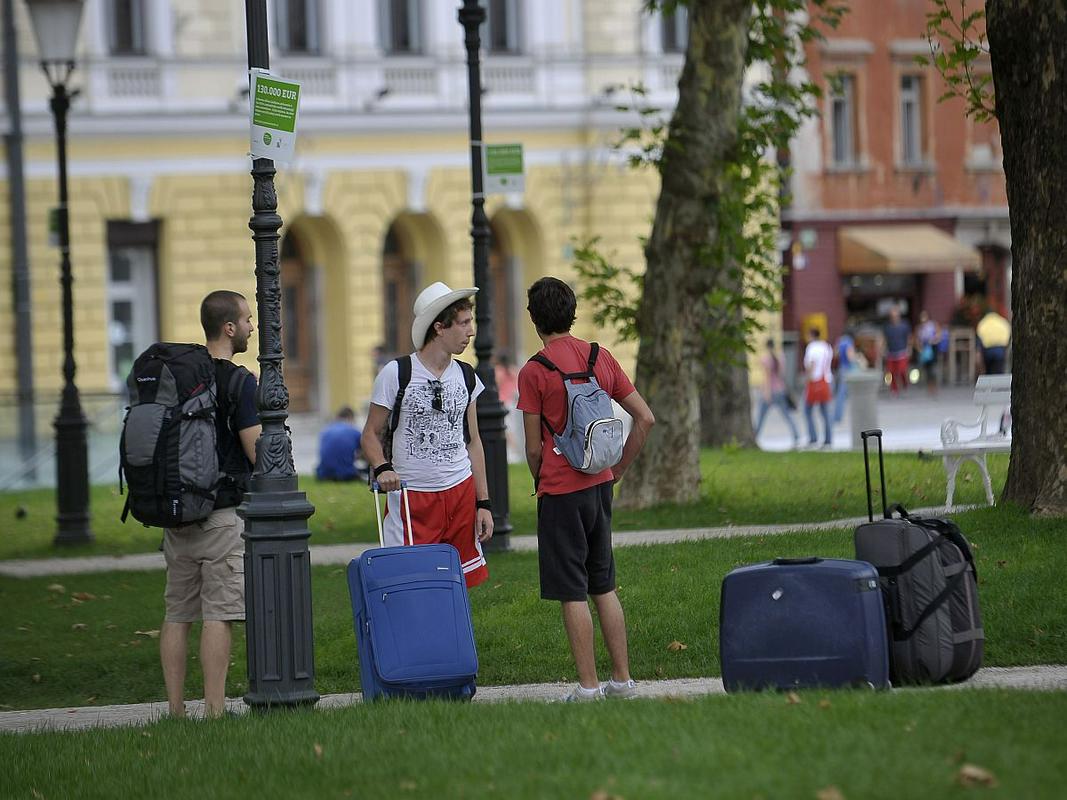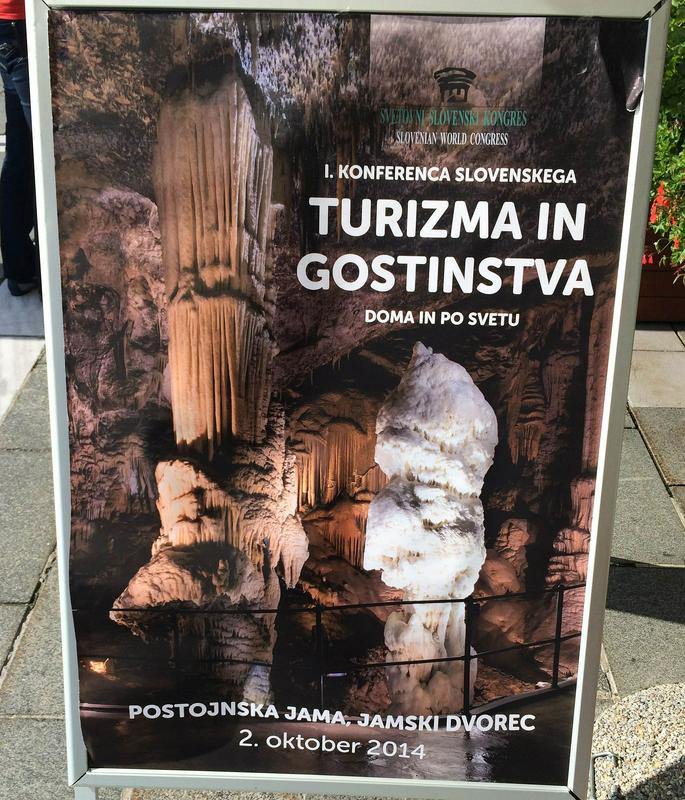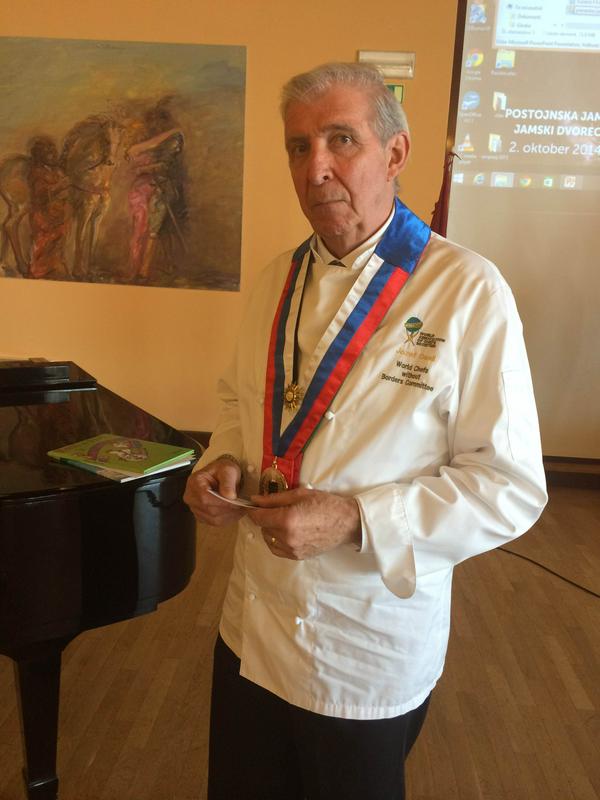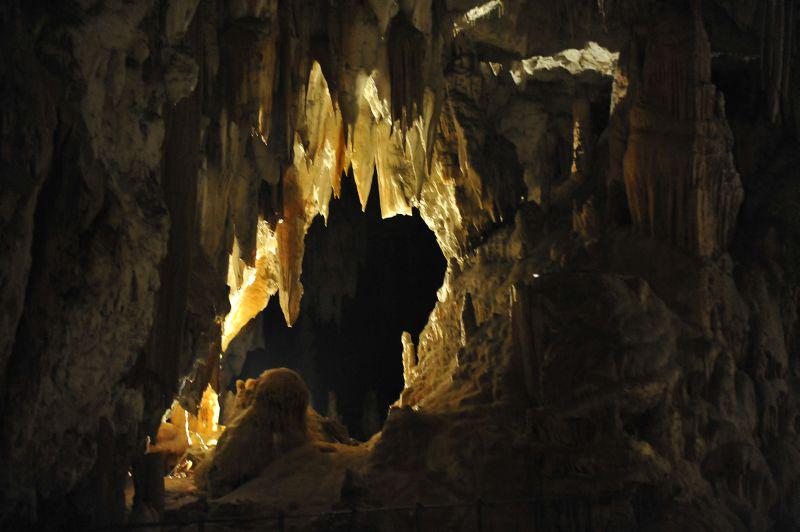



This is only a part of the address by the chairman of the Postojna Cave management Marjan Batagelj, the host of the 1st Conference of Slovenian Tourism and Hospitality from Home and Abroad, organized by the Slovenian World Congress. His introductory lecture Mirror, mirror on the wall tell me… was met with great approval by the participants of the conference.
At the very beginning Batagelj explained that in spite of the title of his lecture it would not be a fairy tale, but quite the opposite. He drew attention to the numerous problems of the Slovenia tourism, and he emphasized the fact that the first thing we should do was change our perspective, as tourism is not something everybody knows everything about. "It is quite easy to discuss tourism in Slovenia, as it is a topic everybody believes to know everything about – just like with football. Pub discussions direct every mayor of every municipality should include the development of tourism into his/her programme. And as the mayors listen to them, we could conclude that we are an extremely well developed country in the field of tourism. Having 212 mayors means we have 212 programmes for development of tourism. Excellent basis, one would think … But unfortunately it is not so."
He criticized operation of public institutes which close their doors at 4 pm, although the working hours in tourism industry should be 24/365. Next he mentioned the catastrophic public transport. We should follow the trends, but again tourist workers hit a wall: "It results in disturbing public order. Municipal ordinances prescribe a closing time – in Postojna everything closes at 11 pm, and we are a tourist town."
Yet Batagelj still believes that the future of Slovenian tourism is bright and strong, but a lot of work is still needed: "We will have to agree on the national level, to understand the trends in tourism, and implement them into widely acceptable legislation. In the end, politics establishes conditions, and if these are inadequate, we can't work. Therefore I am convinced that by replacing public ownership in a larger extent with bold, willing people, tourism will turn into what we expect it to be. Yet we do not expect closed doors, closed museums on Sundays… I have never understood such tourism."
He finished his address by saying: "We need to build the Slovenian tourism based on superlatives, and on people who are willing to invest above-average effort, are world-oriented, and want to succeed. But above all, we must greet our guests with a smile and welcome words: Good afternoon, we are glad you came to visit us."
Natural resources do not guarantee success
Batagelj's idea was upgraded by Maja Konečnik Ruzzier from the Ljubljana Faculty of Economics. At the round table she stressed the importance of natural resources for development of tourism. Yet, natural resources by themselves do not guarantee success of tourist providers; some of the most coveted tourist destinations were created in places with no natural resources – e.g. Dubai. "An active approach is necessary; target groups of tourist must be understood, and new marketing channels sought. By failing to keep up with them, you quite easily fall behind the best," emphasized Konečnik Ruzzier. Slovenia has exceptional natural resources, and thus a lot of opportunities for development of tourism. That is a fact confirmed by all who visit Slovenia.
Abolition of visas, improved public transport
Vlado Tance from Kompas Company advised that new groups of visitors should be attracted as well, namely inhabitants of »other countries«, who are becoming more and more important guests throughout the world. It mostly applies to visitors from the countries of the Arabian Peninsula who in average spend 15,000 euros per person during one vacation. Yet such guests need accommodations and food suited to their wishes, and a wide offer of sightseeing and activities. "But the first requirement would be a direct airline with that area, and a more pleasant and faster manner of acquiring visas," Tance added.
The conference was attended by Jožef Petrovič, Minister of Economic Development and Technology, and Gorazd Žmavc, Minister for Slovenians abroad. Marjan Hribar, Director General of the Tourism and Internationalisation Directorate at the Ministry of Economic Development and Technology, spoke about the situation of the Slovenian tourism in the first section of the lectures: "Tourism is the fastest growing branch of economy in the world. In Slovenia it is already generating 13 percent of gross domestic product, and the revenues are increasing each year."
New trend – darkness and silence
Hribar introduced some guidelines Slovenia should follow as well. Among other things he emphasized that more attention should be paid to the young: "The young are becoming an economically strong and interesting segment of tourists, as they spend more than 160 billion euros per year on tourism. The young travel a lot, stay longer, and spend more money. We are facing the transformation from so-called backpackers to flashpackers – the motives for travels remain the same, only they have more money, and want more comfort both in lodging and in transportation. Slovenia however has something else, which complies with the trends in world tourism," said Hribar.
"While only a couple of years ago we could primarily offer to guests repose, now they seek silence and darkness." The cave of Postojna intends to follow the trend – next year they will start selling darkness and silence. Visitors will be able to illuminate the cave by themselves, and listen to it; they will be able to see proteus in its natural habitat.
Maja Dimnik from the Garden Village Bled, which set a new milestone of Slovenian tourism with its innovative glamping contents, and Joško Sirk from the Subida Restaurant, the only Slovenian with a Micheline star, gave short presentation of their success stories in the next part of the conference; Ljubljana tourist destination was introduced as well. Jožef Oseli, Slovenian chef, onetime personal cook and butler of Josip Broz – Tito, who also had the opportunity to cook for a number of world stars from different fields, e.g. actresses Sophia Loren and Elizabeth Taylor, statesmen Mihail Gorbačov and Vaclav Havel ... Soon you will be able to read more about Oseli!
"To live tourism!"
Several of the participants of the conference characterised themselves as "lunatics" in their activities in tourism. They believe it is indispensable, as you simply must love tourism and dedicate yourself to it completely if you wish to achieve results. In the final part, dedicated to visions regarding Slovenian tourism, where a number of opposing opinions emerged, one of the lecturers Janez Pergar nicely summed the ideas: "You need to live tourism, love and respect it, dedicate yourself to it completely, invest into it money, market it together with other providers, and together rejoice in successes."
In conclusion of the conference Marjan Batagelj added: "I started with a mirror, but I will end in culinary terms. The end, as every dish served, should be spiced up. Differing opinions encourage thinking, and Boris Pleskovič (president of the Slovenian World Congress) and I will put the conclusions in writing. Perhaps you will agree with them, and perhaps not, but the conclusions will be sent to the government. But we all agree on one thing: we all wish that guests would come to Slovenia."
Although the crisis can still be felt, the number of foreign visitor to Slovenia has increased in the first six months of the year by 7 percent. Still the largest number of tourists come from Italy, and the next largest from Austria, Germany, Russia, and the Netherlands. The number of visitors from the Far East is quickly increasing, mostly from China.
Dolores Subotić, translated by G. K.

































































